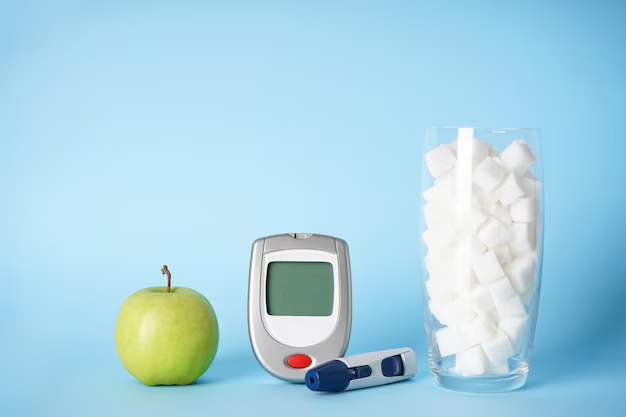Your Guide to How To Know Whether You Have Diabetes
What You Get:
Free Guide
Free, helpful information about Diabetes FAQ and related How To Know Whether You Have Diabetes topics.
Helpful Information
Get clear and easy-to-understand details about How To Know Whether You Have Diabetes topics and resources.
Personalized Offers
Answer a few optional questions to receive offers or information related to Diabetes FAQ. The survey is optional and not required to access your free guide.
Could You Have Diabetes? Here's How to Find Out
Diabetes is a common yet serious health condition affecting millions worldwide. Early detection is crucial, so understanding how to recognize the signs of diabetes is essential for taking control of your health. But how do you know if you have diabetes? Here’s a straightforward guide to help you figure it out.
Recognizing the Symptoms
The symptoms of diabetes can often go unnoticed for quite some time, especially in Type 2 diabetes. However, some common warning signs include:
- Increased thirst and urination: Drinking more than usual and frequent bathroom trips, notably at night, are red flags.
- Unexplained weight loss: Losing weight without trying can be a symptom of diabetes, as your body uses fat stores for energy when it can't access glucose.
- Extreme hunger and fatigue: Feeling tired and hungry more often than usual might indicate that your body's not getting the energy it needs.
- Blurred vision: High blood sugar can cause the lens of your eye to swell, leading to vision changes.
- Slow-healing sores or frequent infections: High sugar levels over time can lead to poor blood circulation, resulting in slow healing.
If you notice these symptoms, a visit to your healthcare provider is a wise step forward. They can conduct tests to accurately assess whether you have diabetes.
Getting Diagnosed
There are several tests that doctors use to determine diabetes:
A1C Test: This measures average blood sugar levels over the past 2-3 months. An A1C level of 6.5% or higher on two separate tests indicates diabetes.
Fasting Blood Sugar Test: A level of 126 mg/dL or higher after an overnight fast suggests diabetes.
Glucose Tolerance Test: This involves fasting overnight, drinking a sugary solution, and then checking blood sugar levels after two hours. Levels of 200 mg/dL or higher indicate diabetes.
Random Blood Sugar Test: Regardless of when you last ate, a level of 200 mg/dL or higher suggests diabetes when accompanied by symptoms.
Early diagnosis and management are key to preventing complications. However, the financial burden of ongoing treatment can be overwhelming for many.
Finding Financial Support
Managing diabetes involves more than just medical care; it's also about addressing financial burdens which can sometimes feel daunting. Here's how you can explore supportive options:
- Government Aid Programs: Medicare, Medicaid, and the Children’s Health Insurance Program (CHIP) provide financial support for eligible individuals.
- Financial Assistance for Medications: Pharmaceutical companies often offer programs that reduce costs for insulin and other diabetes medications.
- Debt Relief Options: Consider exploring debt counseling services to manage medical bills effectively.
- Credit Card Solutions: Some credit cards offer health-focused repayment plans that could make managing expenses more feasible.
- Educational Grants and Scholarships: Look for programs designed for healthcare studies, which could support long-term career growth in the health field itself.
Taking Steps Towards a Balanced Life
Understanding whether you have diabetes is the first step towards a healthier life. If financial challenges arise, remember there are numerous resources available to ease the financial stress. Take initiative and explore these opportunities—they might just provide the help you need to focus on your health.
Financial Support Options
- 🏥 Medicare & Medicaid: Government programs offering medical support
- 💊 Medication Assistance Programs: Discounts on insulin and other medications
- 🏦 Debt Relief Services: Counseling for managing healthcare debt
- 💳 Health-focused Credit Offers: Payment plans for medical expenses
- 🎓 Scholarships for Healthcare Studies: Support for educational growth in health fields
What You Get:
Free Diabetes FAQ Guide
Free, helpful information about How To Know Whether You Have Diabetes and related resources.

Helpful Information
Get clear, easy-to-understand details about How To Know Whether You Have Diabetes topics.

Optional Personalized Offers
Answer a few optional questions to see offers or information related to Diabetes FAQ. Participation is not required to get your free guide.


